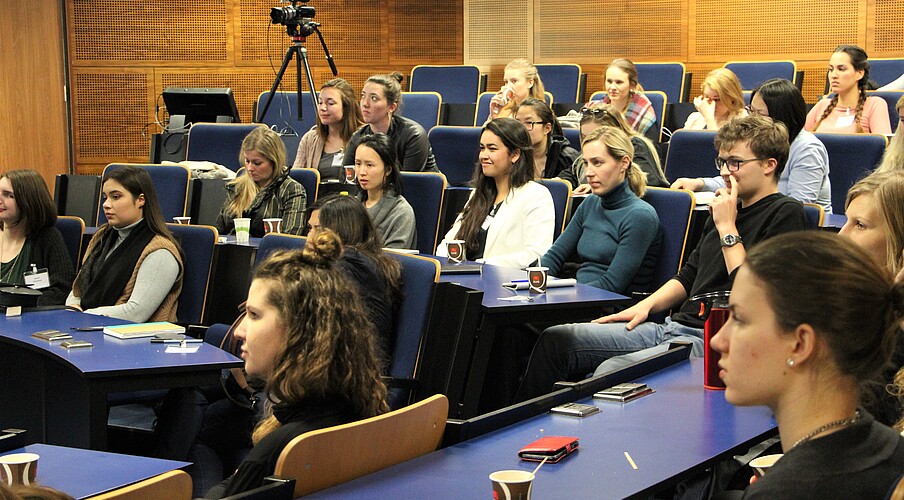Led by diversity expert Prof. Dianne Bevelander and co-facilitated by Prof. Michael Page, students discovered how they can contribute to equal leadership opportunities by actively managing change.
Students started the workshop by discussing why they joined the workshop, resulting in responses ranging from personal development motivations, to career preparations or simply being interested in the subject. Participants then learned that future leaders need to realise that everyone has biases when it comes to gender and leadership.
Gender bias
When asked to describe typical characteristics of men and women and then of leaders, the students found that male traits matched better with leadership characteristics. It was discussed that both genders judge women more negatively when they show male traits. But, irrespective of all these perceptions, women are able to lead but need to adapt to the biased political system to find their success.
Prof. Dianne Bevelander suggested that to reduce gender bias it is important to openly talk about it, stress the importance of people who support you in achieving your goals, and most importantly vouch for the competency of women and trust them in risk situations.
Changing behaviour
“As voices of exclusion become louder around the world it is increasingly important that we encourage dialogue and develop understanding of the richness diversity brings to our lives to our organisations and to the world we occupy”, says Prof. Bevelander.
Attendees were so motivated to ask questions and share their stories throughout the workshop, that the discussion had to be cut short. "The workshop reminded me that we, as women, have our faith in our own hands,” says Raizel Eliasberg, an RSM MSc Marketing Management student. “We're reinforcing gender bias ourselves, too, and we should start by changing that, by sticking up for other women and by changing our behaviour, if only in small ways, in order to ultimately break the vicious cycle of gender bias."
The Erasmus Centre for Women in Organisations (ECWO) is committed to women’s continued advancement into leadership positions across multiple sectors – in large and small private companies as well as public and private not-for-profit organisations. Its mission is to make a meaningful contribution to management education, the gender debate, and make an impact on gender in the workplace. To achieve this, ECWO develops and provides executive education programmes for women in business, identifies and addresses ongoing challenges to the progression and retention of women to the highest levels of organisations in the private and public sector, and undertakes and facilitates collaborative high-quality applied and academic research.






